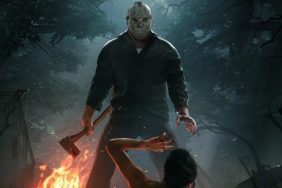Image Credit: Leslie Alejandro
Fallout 4 has arguably matched the lofty expectations many had for it, which seemed like it would be a nigh-on impossible feat prior to its release. A big facet of the game is a story that more actively involves the player-character, replacing your mute protagonist from Fallout 3 with a hero/heroine that is inserted into the game’s plot via cutscenes and actual spoken dialogue. This was a major development for the series, and one which saw a heap of responsibility placed on the shoulders of voice actors Courtenay Taylor and Brian T. Delaney, who proved themselves to be more than capable of assuming two of the biggest roles in voice acting of the past few years.
With that being said, we recently caught up with Courtenay to discuss her role in Fallout 4, her thoughts on video game voice acting as a profession, the increasing amount of female player-characters and everything in between.
Take a look below:
Crave: Depending upon the player’s choice of character, you’re either portraying Fallout 4’s protagonist or a relatively minor character in terms of how much screen time she receives. What was it like knowing that how much time players would get to spend hearing your work on the game was ultimately decided by a choice they made in its opening?
I never really considered that it was going to be a relatively minor character for some people’s playthroughs. I like to think that with any character, you’re bringing a fully-realized character no matter how much screen time they have, so that whether the train stops at the station with the doors open or just passes through with a quick stop, you’re getting a full vertical slice of that character. And I guess I presumed most people would be be curious enough to play as a male and then female character, or vice versa, and that they would then get to hear [Fallout 4’s male lead voice actor] Brian T. Delaney and me as a full playthrough.
You voiced several characters in Fallout: New Vegas, but have now been given the task of assuming the role of protagonist in Fallout 4. How do you make the transition from taking on a selection of small roles, to being the player-character within the same series?
Transitioning from small roles to the player-character, again, a fully-fledged character, a bigger vertical slice of that character, to be consistent. I think that’s probably [one of] the pit-falls of doing a long-term game is that you can lose consistency from the beginning to the end two years later. But I felt like our director, Kal-El Bogdanove, was really amazing in keeping us focused and consistent. We’d do four days on and one day off one week per month, and it took very little time for us to jump right back into the characters when we got to work, and that’s a testament to Kal and his directing skills.
How much did you know about Fallout 4 when you first got the job? Did you know that your character was either going to be the protagonist or the wife of the protagonist?
I didn’t know really anything about Fallout 4… I didn’t know we were working on Fallout 4 when I got the job. [With] video games, a lot of work that we do is under NDA (non-disclosure agreement) and is under code names, so we kinda jumped in and then a few weeks later found out what we were doing. I did know that the character was going to be a female player voice. I knew it was gonna be equal time for both characters.

Fallout 4 deals with themes of loss and bereavement, with players being tasked with retrieving their kidnapped son following the death of their husband/wife.
One of the main themes of Fallout 4’s central plot thread is loss and bereavement. Unlike a film, though, in a video game this theme must be sustained over a period of several hours, which I can imagine presents some difficulties. How do you help keep the player invested in the emotional journey of your character throughout the duration of the game?
Yeah, the theme of loss and bereavement is sustained over many hours. I think keeping the player invested in the emotional journey comes from the writing that was given to us. The writers gave us amazingly high stakes, and as actors that’s a lot of fun, in a tragic kind of way, to play those things out, because it really gives you something to sink your teeth into. And so although it was emotionally draining to act out such intense loss – it was some of the hardest sessions I’ve ever done – it was also rich territory to mine so I’m incredibly grateful to the writers at Bethesda for doing that, and I think that the proof is in the pudding, that people are really enjoying the game.
Treyarch recently introduced the option to play as a female protagonist in Black Ops 3, but they were criticized for not having altered the script to accommodate this addition, with NPCs even referring to the player-character as “him” regardless of whether or not the player had opted to assume the role of a male or female soldier. How does Fallout 4’s script tackle the issue of approaching this story from the perspective of a male and female? Are there any key differences you noticed between yours and Brian Delaney’s versions of the script?
I loved that the Fallout 4 writers approached writing the scripts more open to tailoring some of the language to a female instead of just using one set of lines for male and female. I think they wanted to give the player a real different experience with a male and a female. They wanted it to be two separate people on the same journey, as opposed to a male and a female person on a journey, and I think they did that quite beautifully. I did not record with Bryan, so I don’t know all the differences, but I do know that Bethesda was really open to our suggestions during the recording process. If something didn’t ring true coming out of my mouth, or a woman would say it differently, they took it under advisement for sure and gave us some room to play with and I’m very grateful to them for that.

Black Ops 3 was criticized for including the option of a female protagonist, but then failing to alter the game’s dialogue in order to reflect this addition.
The karma system in Fallout 4 has been partially replaced by more nuanced relationships between the protagonist and their various companions. Which companion is your personal favorite?
Well, I mean, that’s hard to say. I think the beauty of that question is that it is really hard to decide because they each have such interesting stories. My ears definitely pricked up when we went over the material where we meet Kate the fighter. I actually at one point, when they were describing her, was like “What?! I didn’t get to read on this!” and Kal and the engineer were like “Seriously?!” [Laughs]
I was really enamored by the whole idea of having Dogmeat as your companion, because I’m a huge dog lover and a huge animal lover so if I had to pick just one it’d definitely be Dogmeat, because I just love the idea of being able to bring a loyal creature who… animals give you that unconditional love, so I think that’d be a wonderful thing to have in the wasteland. But, y’know, it’s a really tough question because all of the companions are written so well, they have cool backstories and tragedy, so that at any given time in a playthrough I could be pretty into one over the other and that could change. So I think that’s the beauty of this game. It was also really fun to find out that so many of my friends are in this game, and I had no idea while we were recording, so it was really fun to finally know who the cast was when we were done, and find out that my friends were my friends before they were my friends and companions! Does that make sense? Yeah? Yeah! [Laughs]
Though Fallout 4 gives players the option between picking between a male and a female protagonist, the intro of the video features a monologue from the male version of the Sole Survivor, almost assuming that players will opt to pick this version of the character. The majority of the game’s marketing material has also featured the male survivor over the female survivor, too, something which we’ve also seen in the likes of the Mass Effect series with the lesser advertized “FemShep,” and the aforementioned Black Ops 3. Why do you think this is, and do you think it will ever change?
As far as marketing goes, I think, y’know, the default for marketing is generally for a while male player-character, and I think as player choice increases and it’s woven into more games, that we will see change. That there are a lot of men out there who don’t want to play as a man, and vice versa, women the same. So I think choice is the key, and representation is the key, and the more that a player can choose to either represent themselves or not represent themselves at all while they play, that that marketing will be the next phase that that we see. So I’m looking forward to seeing what the next round of games comes out with, now that it’s becoming more popular to have a female choice for a protagonist, and multiple protagonists as well. So I think we’re going to see some really interesting and really different marketing down the pipe from many different companies.
From an outsider’s perspective, it seems that video game voice actors are getting much more recognition than ever before. Would you say that this is true?
I do think voice actors are getting more recognition. I have a theory about movies and television voice actors doing video games. I think movie stars are larger than life, and so you treat them as such, television stars are in your living room so you feel like you know them, but the feedback I get about video games is that when I meet people, they’re like “You were in my squad! We fought together!” or “I killed you! I’m so sorry!” [Laughs] I think that the more attached people get to these characters, a by-product is that the voice actors become more interesting to people who play games, and I’m all for it. I feel like we all work really hard, everyone I know in this business is incredibly talented, it really is a meritocracy in that people don’t care what you look like, they wanna know how you can act, and so the people who tend to do the best in this business are the people who are incredibly talented, and they deserve the recognition for their hard work and their range and the fact they can blow your mind by sneaking from character to another and you don’t even know, and so I’m proud of what I do and the people I get to work with.

Courtenay also portrayed Jack in the Mass Effect series.
I can imagine that recording the voice over work for a game as huge as Fallout 4 was incredibly time-consuming, but now that it’s over, do you have any immediate plans in regards to where your career is headed next? Are you going to be making an appearance in any DLC for the game?
We’ve been working on Fallout 4 for the past two years, and so that’s been a big part of my work life. Now that it’s over, I’m more than happy to return for DLC should that come down from Bethesda. I will be there. I am also working on a few other video games which I can’t talk about due to NDAs. I will be your female captain voice for Firefly Online, which will be coming out from Sparkplug Games, and I’m still working on Regular Show as Starla. We just got a season 7 renewal and so I’m extremely happy for those insanely talented people over at Cartoon Network.
Follow @CourtenayTaylor on Twitter
Visit CourtenayTaylor.com








